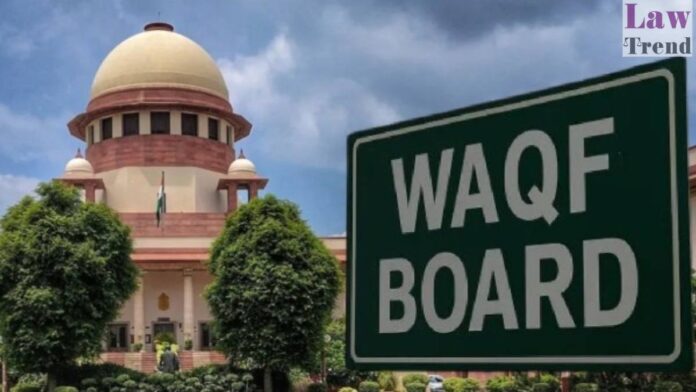The Supreme Court on Wednesday held a crucial hearing on the constitutional validity of amendments to the Waqf Act, during which the bench headed by Chief Justice of India Sanjiv Khanna posed sharp questions to the Centre. The hearing, which lasted nearly 70 minutes, indicated that the Court may soon issue an interim order on the challenged provisions. However, due to time constraints and the complexity of issues, no interim relief was granted yet, and the matter is set to continue today.
What Was Expected on Wednesday?
The Supreme Court was expected to issue an interim order on three controversial aspects of the amended Waqf law:
- Denotification of properties classified as “Waqf by User”.
- Inclusion of non-Muslim members in the Waqf Board.
- Powers granted to District Collectors in Waqf property disputes.
Before any such direction, however, the Centre urged the Court to hear its arguments in full. Taking note of the limited time, the Court deferred interim orders and adjourned the hearing to today.
Key Developments During the Hearing
The petitioners challenging the amended Waqf Act argued that the law infringes upon fundamental rights and unfairly burdens property owners, particularly through the removal of the “Waqf by User” provision. Senior Advocate Kapil Sibal, representing the petitioners, argued:
“It’s not that simple. Waqf is an ancient concept. If you now demand a deed for a property that has been used for religious purposes for 300 years, that’s problematic.”
Chief Justice Khanna echoed this concern and asked:
“Why was the ‘Waqf by User’ provision removed? There are mosques dating back to the 14th and 16th centuries. Many such religious properties would not have a registered sale deed. How will these be treated under the current law?”
The Court warned that removing such protections could result in prolonged litigation and confusion.
“We understand that the earlier law was sometimes misused. But there are also genuine Waqf properties. If those are discarded due to the amendment, it will create complications.”
Centre’s Response to the Court’s Questions
Solicitor General Tushar Mehta, appearing for the Union government, responded that:
- A property already registered as Waqf remains so.
- Registration has always been mandatory — under the Waqf Acts of 1923, 1954, 1995, and even after the 2013 amendments.
- No individual has been prevented from registering a property as Waqf.
In reply to specific queries from the Court:
- On unregistered user-based Waqf properties: The Collector will investigate, and if found to be government land, it will be corrected in the revenue records.
- On disputes: Any party dissatisfied with the Collector’s decision can appeal before the Waqf Tribunal.
- On pre-British era properties without registration: The Court sought clarification on how such assets would be recognized.
What’s Next?
The Supreme Court will continue hearing the matter today. With mounting judicial scrutiny over the deletion of the “Waqf by User” clause and expanded powers granted to district authorities, the outcome of the interim order will have wide legal implications. The Court’s observations suggest that while it acknowledges past misuse, it is wary of overcorrection that could affect genuine Waqf properties.
The legal community, state authorities, and religious trusts across the country await the Court’s next move — whether it will pause implementation of the amended law or allow it with conditions.




